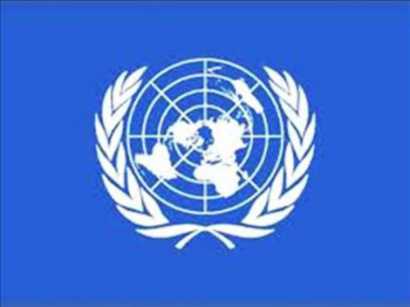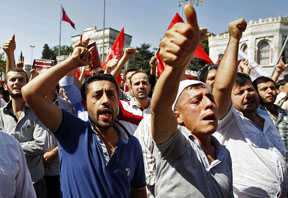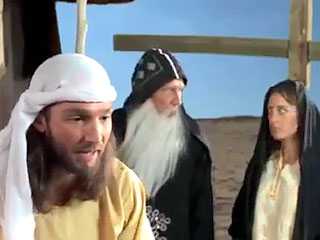Turkish universities are becoming an increasingly popular destination for students from around the globe, signalling the importance of the growing education sector for Turkey. Between the 2005-2006 and the 2011-2012 school year, the number of international students attending Turkish universities more than doubled, from 15,481 to 31,170.
The growth of foreign students has been matched by the expansion of higher education in Turkey, where 50 public universities and 36 private foundation universities were established between 2006 and 2011, bringing the total number to 165. The same period witnessed an increase of 40 percent in the number of Turkish students attending university.
Students come from 155 countries to study in Turkey. In 2011-2012, Azerbaijan had the largest representation with more than 4,200 students, followed by Turkmenistan with 4,110 and the Turkish Republic of Northern Cyprus with about 3,800. Europe also showed strong numbers, with both Germany and Greece sending more than 1,300 students.
The experiences foreign students gain during their time in Turkey are of lasting value for foreign and Turkish students alike, helping to deepen ties between individuals that span national borders and erase stereotypes.
The motivation to pursue higher education in Turkey varies from student to student. For some it is the prospect of an inexpensive and quality education. For others it’s the opportunity to learn Turkish and receive an education in one of the many English language universities.
Desantilla Hasanaj came from Albania to study political science and public administration at Fatih University in Istanbul. She chose to study in Turkey “because the education here is much better than Albania.”
For Mohamed Bachir from Niger, who is in his second year studying Business Administration at Bahcesehir University in Istanbul, the opportunity to learn a new language and culture made Turkey his first choice.
Wazir Ali, from Pakistan, who is studying at Zirve University in Gaziantep, was drawn by the prospect of learning Turkish and improving his command of English by studying in a programme that uses English as the language of instruction.
But it is not just the international students who benefit from studying in Turkey. Foreign students add to the character and quality of education for Turkish students as well.
Michael Brownfox has taught at numerous Turkish universities and was a founding partner of StudyinTurkey.com, a programme run by the Turkish Universities Promotion Agency, a private organization devoted to attracting students to Turkey.
Brownfox told SES Türkiye universities benefit from attracting international students to their student body, not only in financial terms, but also in the new opportunities and ideas that come from educating students who bring a different perspective on the world.
Having international students “really helps Turkish students to see both how big and small the world is,” Brownfox said. “This is a major benefit,” he noted, pointing out that the dynamic created by a global classroom better prepares all students, foreign and Turkish, to succeed in the global marketplace.
One of the most successful student exchange programmes is the EU’s Erasmus programme, which is open to 33 countries, including Turkey, and facilitates the process of student exchanges.
Since Turkey began participating in 2004, nearly 15,000 students have come through this one programme alone, according to data published by the European Commission.
Liam Murray, who came to Turkey from England as an Erasmus student, wanted the opportunity to see the world from a different perspective and made Turkey his first choice over universities in North America or Europe.
Now beginning his fourth year living and working in Turkey, he remarked how the difference in ideas and background of the students at Middle East Technical University in Ankara added to the educational experience and drew him back to Turkey after graduation.
When students study in Turkey their education extends beyond the classroom as they get first-hand exposure to Turkish culture through their everyday interactions in Turkish society.
For the Albanian student Hasanaj, her time studying in Istanbul for her bachelor’s degree, and now a master’s degree, has given her a unique vantage point to observe the intricacies of Turkish society.
“After I got to know their past history and people, now I can better understand the complexity in which this society lives,” she said.
Creating a new generation of international students with exposure to Turkish language and society is in part a reflection of Turkey’s dynamic and proactive foreign policy over the past decade. Many of the students who come to study can use their knowledge of Turkey and connections to build bridges between Turkey and their home country.
Education as an arm of diplomacy can be seen in relatively new foreign policy areas like Africa, where until the mid-2000s Turkey had only a handful of embassies, but plans to have at least 33 by the end of 2012. A total of 1552 students from 44 African countries studied in Turkey in 2011-12, over a four-fold increase compared to 2005-06.
Jalil Abdallah, from Ghana, studied in his home country as well as in Egypt, and worked in a high school before he decided to pursue a graduate degree in international relations in Turkey.
Abdallah said the reconceptualisation of Africa within Turkish foreign policy prompted him to study in Turkey. With growing trade, diplomatic, educational and cultural ties between Turkey and Africa, he said studying in Turkey was the first step toward learning Turkish language and culture in order to pursue a career in diplomacy or an international organisation.
“The valuable thing is language and culture,” Abdallah told SES Türkiye. “‘The limit of my language,’ as said by Ludwig Wittgenstein, is ‘the limit of my world’.”
Another African student, Abobakar Tshilomba, studies economics and hopes that upon graduation he will be able to work in a business that connects his home country, the Democratic Republic of Congo, and Turkey. Having studied as an undergraduate in Turkey he will be well placed to facilitate connections and trade between the two countries.
Tuesday, 18 September 2012
SES Turkiye





